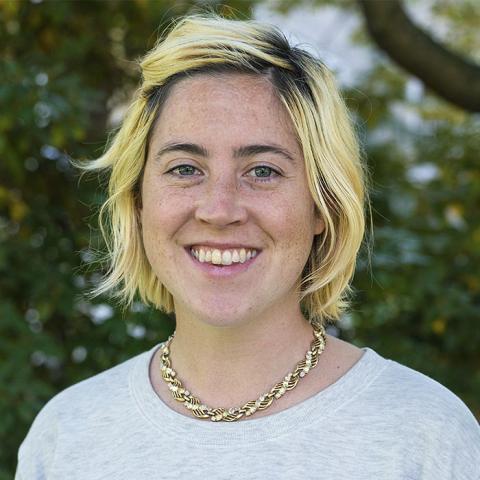Where Our Coffee Comes From

Photo courtesy of Vega Coffee.
Details
CPGC Fellow Ines Purcell BMC '20 writes about Vega Coffee, a partner of her internship organization Agora Partnerships and supplier of coffee at Haverford College.
Coffee is an integral part of our lives, especially for college students. The U.S. alone spends around $40 billion on coffee each year, sourced from all over the world, and we Bi-Co students are used to having a dispenser full of coffee at the DC. However, do we ever stop to think about where our coffee comes from when we fill up our takeout cup running late to class?
Coffee is a notorious industry that’s known for exploiting farmers. Most coffee farmers face difficult and unstable farming conditions combined with receiving only 10% of the total profit (the rest going to intermediaries/distributors), perpetuating the cycle of poverty for these farmers. This complex intermediary system that includes exporters, importers, shippers, roasters, packagers, and distributors strips the coffee growers of their profits. However, recently there has been more consciousness towards fighting for a fairer coffee economy. The Fair Trade Labelling Organization (that oversees Fair Trade USA) has become extremely popular in the United States as a sustainable alternative to regularly produced coffee. This being said, the Fair Trade coffee business model still does not do enough. The certification to become Fair Trade certified is incredibly expensive for coffee farmers, so most of the farms are larger plantations, and there is very little to no long term benefit for small farmers to invest in Fair Trade. In addition, coffee growers under fair trade still need to go through intermediaries to sell their product and still don’t receive much, tying them down to this cycle of poverty.
This is where Vega Coffee comes in. Vega Coffee seeks to completely remove the intermediary actors in the process, and instead have the farmers grow, roast, and package their coffee to later sell directly to the consumers. Vega provides both the tools and the network to help them achieve this, eliminating all the intermediary baggage and acting as the sole intermediary actor. Not only is it a more sustainable impact business model, it also greatly increases the farmers’ income and provides its end consumers with fresher, more ethically-grown coffee beans.
The co-ops of Vega Coffee collectively represent 4,000 small farmers from Nicaragua, coming from the Esteli, Nuevo Segovia and Madriz regions. Vega started in 2014 with a core of five women roasters who coordinated their farmer-roasting team, and now have more than 20 team members. Entrepreneurship can be challenging in Latin America due to lack of funding and resources. So ideas like Vega Coffee sometimes get lost in the jungle on their path towards a successful business. Vega however had the help of Agora Partnerships to guide them through the path of entrepreneurship, and help them become a successful company that brings about social impact.
Agora Partnerships is a non-profit organization founded by a Haverford Alum, Ben Powell '93 (who also co-founded student comedy group Lighted Fools), bringing sustainable social impact to communities across Latin America since 2011. Since their start, the organization has supported and strengthened more than 270 successful entrepreneurs and businesses like Vega Coffee. Thanks to this connection, Haverford College is one of Vega Coffee’s many clients. So, when you drink your coffee from HC in the morning or late at night because you’ve been procrastinating all week, you can rest easy that you’re contributing to a more sustainable and ethical coffee industry.
- Ines Purcell BMC '20, CPGC Fellow at Agora Partnerships
Sources:
https://www.hsph.harvard.edu/news/multimedia-article/facts/
https://ssir.org/articles/entry/the_problem_with_fair_trade_coffee
https://www.huffpost.com/entry/10-reasons-fair-trade-coffee-doesnt-work_...




